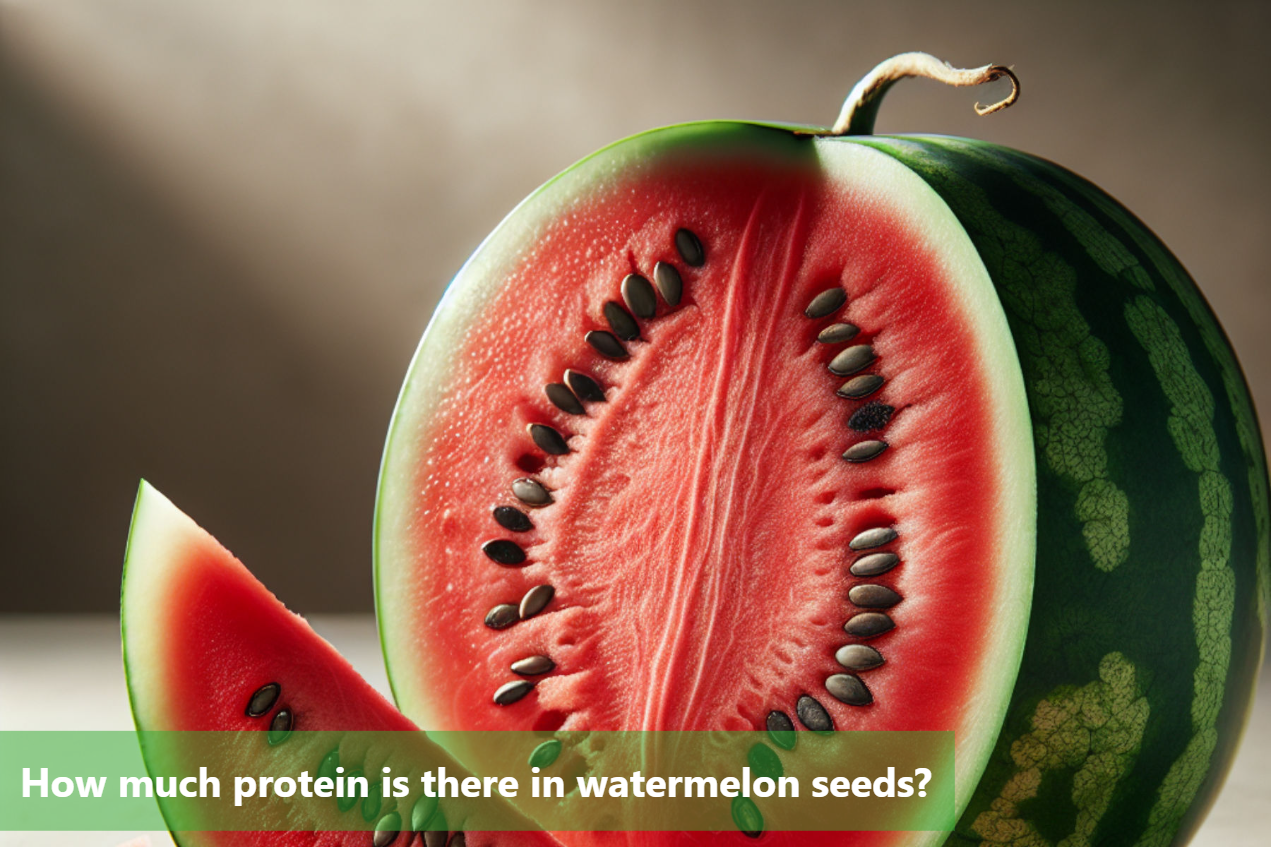
How much protein is there in watermelon seeds?
Watermelon seeds are often overlooked as a source of nutrition, but did you know that they are packed with protein? In fact, watermelon seeds contain a significant amount of protein, making them a valuable addition to a healthy diet. Understanding the protein content in watermelon seeds is important for anyone looking to boost their protein intake in a natural and plant-based way.
When we talk about protein in watermelon seeds, we are referring to the amount of this essential nutrient found in each seed. Surprisingly, watermelon seeds contain around 10-15 grams of protein per 100 grams, making them a relatively rich source of this macronutrient. This makes them a great option for those following a vegetarian or vegan diet, as they provide a plant-based source of protein.
Whether you are looking to increase your protein intake, explore new plant-based protein sources, or simply add variety to your diet, understanding the protein content in watermelon seeds can be a game-changer.

Nutritional Benefits of Watermelon Seeds
1 cup of dried watermelon seeds contains:
Protein (g) |
30.6 |
Total lipid (fat) (g) |
51.16 |
Carbohydrate, by difference (g) |
16.53 |
Energy (kcal) |
601.56 |
Calcium, Ca (mg) |
58.32 |
Iron, Fe (mg) |
7.86 |
Magnesium, Mg (mg) |
556.2 |
Phosphorus, P (mg) |
815.4 |
Potassium, K (mg) |
699.84 |
Sodium, Na (mg) |
106.92 |
Zinc, Zn (mg) |
11.06 |
Copper, Cu (mg) |
0.74 |
Manganese, Mn (mg) |
1.74 |
Health Benefits
Support Digestive Health: The fiber content in watermelon seeds helps promote healthy digestion by preventing constipation and supporting regular bowel movements.
Heart Health: Watermelon seeds contain heart-healthy fats like monounsaturated and polyunsaturated fats, which can help lower cholesterol levels and reduce the risk of heart disease.
Boost Immune System: The vitamins and minerals present in watermelon seeds, such as vitamin C and zinc, play a crucial role in boosting the immune system and protecting against infections and illnesses.
Supports Bone Health: Watermelon seeds are a good source of minerals like magnesium and phosphorus, which are essential for maintaining strong and healthy bones.
Regulates Blood Sugar Levels: The fiber and protein content in watermelon seeds help stabilize blood sugar levels and prevent spikes, making them beneficial for individuals with diabetes or those at risk of developing diabetes.
Improves Skin and Hair Health: The vitamins and minerals in watermelon seeds, particularly vitamin E and zinc, promote healthy skin by protecting against oxidative damage and supporting collagen production. They also contribute to healthy hair growth and maintenance.
Ways to Incorporate Watermelon Seeds into Your Diet
When it comes to boosting your protein intake, watermelon seeds can be a valuable addition to your diet. Here are some simple and creative ways to incorporate these nutrient-dense seeds into your meals and snacks:
Sprinkle on Salads: Add a crunchy texture and nutty flavor to your salads by sprinkling roasted or raw watermelon seeds on top. They can complement both leafy green salads and fruit salads perfectly.
Blend into Smoothies: For a protein-packed smoothie, blend a handful of watermelon seeds with your favorite fruits, leafy greens, and plant-based milk. This addition not only enhances the protein content but also adds a unique taste.
Trail Mix: Create a homemade trail mix by combining watermelon seeds with nuts, dried fruits, and a hint of dark chocolate. This on-the-go snack is convenient, satisfying, and provides a good balance of protein and healthy fats.
Crush as a Topping: Crush watermelon seeds and use them as a topping for yogurt, oatmeal, or even baked goods like muffins and bread. They can add a nutritious boost along with a delightful crunch.
-
Incorporate into Energy Balls: Blend watermelon seeds with dates, nuts, and a sprinkle of cinnamon to make energy balls. These bite-sized snacks are perfect for a quick protein fix between meals.
By incorporating watermelon seeds into your diet in these creative ways, you can enjoy the benefits of their protein content while adding variety and flavor to your meals and snacks.

Exploring the Protein Content of Watermelon seeds
Watermelon seeds are not only a rich source of protein but also contain other vital nutrients. With approximately 35-40 grams of protein per 100 grams, they offer a convenient and plant-based protein option for those looking to enhance their protein intake.
By incorporating protein-rich foods like watermelon seeds into your daily meals, you can ensure that your body receives the necessary building blocks for optimal health and well-being. Incorporating watermelon seeds into your diet can be as simple as sprinkling them over salads, yogurts, or smoothie bowls. Their versatility makes it easy to boost your protein consumption without much effort.
By embracing watermelon seeds as a protein-rich addition to your diet, you are not only nourishing your body but also reaping the numerous health benefits they offer. So, why not start incorporating these tiny nutritional powerhouses into your meals today?
This Blog post is an initiative by Lo! Foods, to provide accurate and Nutritionist / Doctor approved information related to Health. Lo! Foods is India's leading brand for Everyday Functional Foods. Foods designed for specific Health conditions or Needs. Lo! Foods also runs India's largest range of Low Carb Healthy Cloud Kitchens, under the brand names of Lo!, ProteinChef, ATH (All Things Healthy) and DiabeSmart.













Leave a comment
Your email address will not be published.